If you’re contemplating getting a feline companion, you may have come across the Himalayan cat and the Persian cat during your research. Both breeds are undeniably beautiful and instantly catch your eye with their luxurious fur and captivating personalities. But how do you choose between these two delightful feline companions? In this article, we will explore the differences between the Himalayan cat and the Persian cat, helping you make an informed decision about which breed is the perfect match for you and your unique preferences.
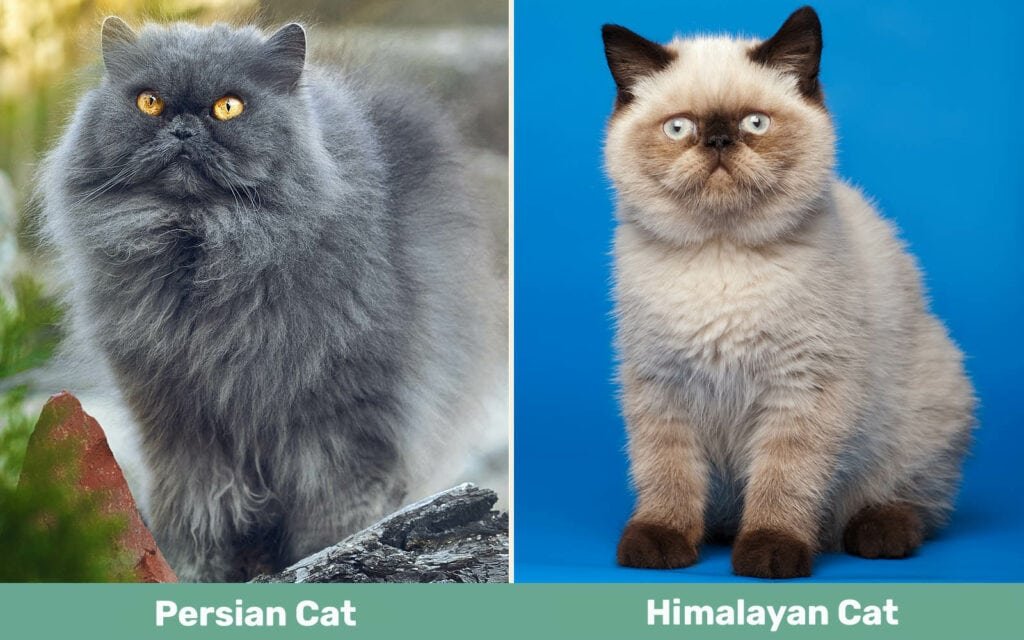
This image is property of www.catster.com.
Physical Appearance
Body Type
Himalayan cats and Persian cats share a similar body type. They have a rounded appearance with a stout build and short legs. These cats are known for their stocky frame and a muscular body that gives them an adorable teddy bear-like appearance.
Coat
Both Himalayan cats and Persian cats have a thick, long, and luxurious coat. Their fur is soft to the touch and requires regular grooming to maintain its beauty. The coat of a Himalayan cat is distinguished by its color points, which are darker shades on the ears, face, paws, and tail. On the other hand, Persian cats have a more uniform coat color.
Color
When it comes to color, the Himalayan cat and Persian cat offer a wide range of options. Himalayans come in various point colors, including lilac, chocolate, seal, and blue. Persian cats, on the other hand, have a wide variety of coat colors, including solid, tabby, calico, tortoiseshell, and bi-color.
Facial Features
Both Himalayans and Persians have characteristic flat faces with big, expressive eyes. However, the Himalayan cat’s face often has a rounder appearance due to its Siamese ancestry. This creates a distinctive and charming facial expression that many find irresistible.
Temperament
Personality Traits
Himalayan cats and Persian cats share similar personality traits. They are known for their calm and gentle nature. These cats are generally laid-back, preferring a relaxing and peaceful environment. Himalayans and Persians are affectionate companions who enjoy cuddling and spending time with their human family members.
Activity Level
Both breeds are relatively low in energy and tend to be less active compared to some other cat breeds. They are content with a quiet indoor lifestyle and do not need excessive exercise or playtime. It’s not unusual to find a Himalayan or Persian cat happily lounging around, enjoying their comfortable surroundings.
Social Behavior
Himalayans and Persians are social cats that thrive on companionship. They enjoy the company of their human family members and will often follow you around the house. While they appreciate gentle attention and affection, they are not demanding and can be independent at times. These cats are generally well-suited for individuals or families looking for a calm and loving feline companion.
Grooming Needs
Coat Maintenance
One thing to consider before bringing a Himalayan or Persian cat into your home is their grooming needs. Both breeds have long, flowing coats that require regular maintenance to keep them looking their best. Daily brushing is necessary to prevent matting and keep their fur clean and free from tangles. Regular grooming sessions also provide an opportunity to bond with your cat and ensure their coat remains in top condition.
Eye and Facial Care
One distinctive feature of Himalayan and Persian cats is their beautiful, expressive eyes. However, their flat faces can be prone to eye discharge, which needs to be carefully cleaned to prevent any discomfort or infections. Additionally, regular facial cleaning is essential for these breeds to keep their adorable faces dirt-free and avoid any respiratory issues caused by dust or debris.
Bathing
While Himalayan and Persian cats do not require frequent baths, occasional bathing is recommended to keep their coats clean and healthy. Bathing intervals can vary depending on individual cats and their exposure to dirt or odors. It’s important to use cat-specific shampoos and gentle techniques to minimize stress during the bathing process.
Health Considerations
Common Health Issues
As with any cat breed, Himalayans and Persians are prone to certain health issues. Some common health concerns for these breeds include polycystic kidney disease (PKD), hypertrophic cardiomyopathy (HCM), respiratory problems associated with their flat faces, and dental issues. Regular veterinary check-ups and a healthy diet are crucial for maintaining their overall well-being.
Potential Allergies
It’s essential to note that some individuals may be allergic to cats, and both Himalayans and Persians can trigger allergic reactions in sensitive individuals. If you or someone in your household has allergies, it is recommended to spend time with the breed beforehand to see if any allergic symptoms occur.
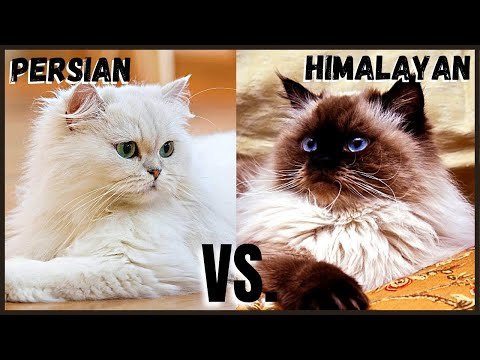
This image is property of i.ytimg.com.
Living Arrangements
Indoor or Outdoor?
Due to their physical characteristics and easygoing nature, Himalayan and Persian cats are best suited for indoor living. These breeds are not built for harsh outdoor conditions and are more vulnerable to injuries, parasites, and theft when allowed to roam freely. Providing a safe and enriching indoor environment with plenty of toys, scratching posts, and comfortable resting spots will keep them content and safe.
Home Space Requirements
Himalayan and Persian cats are a perfect fit for various living spaces, including apartments or houses. These cats are not known for their high activity levels and can adapt well to smaller living spaces. However, it’s essential to provide them with enough vertical spaces, such as cat trees or shelves, to allow them to explore and perch high above the ground.
Suitability for Families
Compatibility with Children
Himalayan and Persian cats are generally well-suited for families with children. They have a calm and affectionate nature, which makes them patient and tolerant around kids. However, it’s crucial to teach children how to handle cats gently and respect their boundaries to ensure a harmonious coexistence.
Interaction with Other Pets
Himalayan and Persian cats can be compatible with other pets, such as dogs or other cats. They generally have a non-confrontational and peaceful temperament, making it easier for them to adapt to living alongside other animals. Slow and supervised introductions are recommended to ensure a smooth adjustment period.
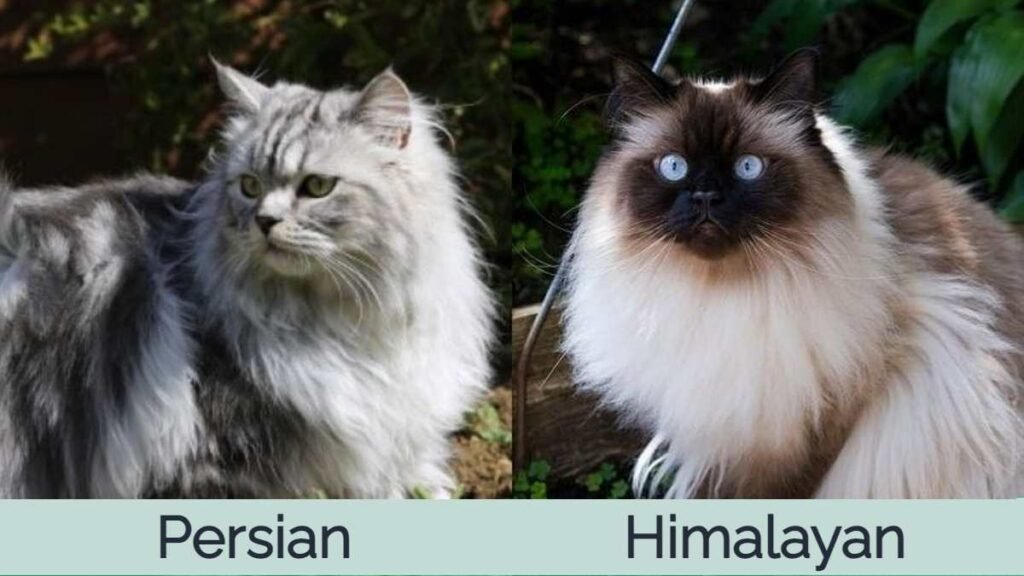
This image is property of www.hepper.com.
Training and Intelligence
Trainability
Both Himalayan and Persian cats have a reputation for being less eager to learn tricks or follow commands compared to some other breeds. However, they are highly trainable when it comes to litter box usage and basic obedience. Using positive reinforcement techniques, such as treats or praise, can help motivate them during training sessions.
Problem-Solving Skills
Himalayan and Persian cats are not typically known for their problem-solving skills. They are not as independent or curious as some other breeds, which means they may not seek out challenges or engage in complex activities. However, they can still benefit from interactive toys or puzzle feeders to stimulate their minds and keep them entertained.
Exercise Requirement
Physical Activities
Himalayan and Persian cats have a low exercise requirement and generally prefer a sedentary lifestyle. Short play sessions with interactive toys or a wand toy can help them get some physical activity and maintain a healthy weight. However, it’s important not to overexert them or expect them to engage in high-energy activities like some more active cat breeds.
Mental Stimulation
While Himalayans and Persians may not be the most intellectually demanding cats, they still benefit from mental stimulation. Providing them with puzzle toys, treat-dispensing toys, or interactive play sessions can help keep their minds engaged and prevent boredom.
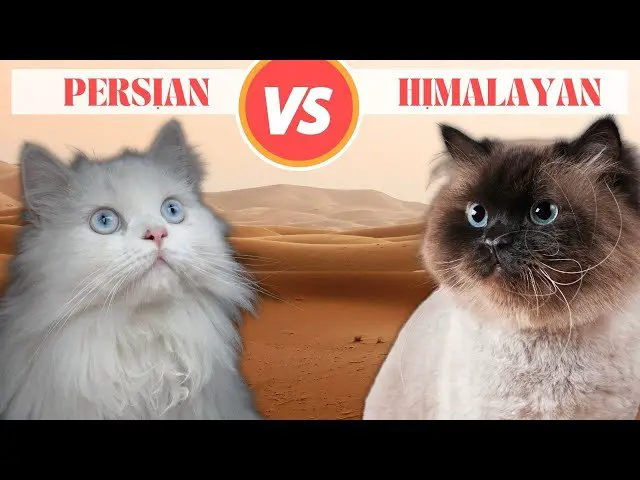
This image is property of i.ytimg.com.
Availability and Cost
Breeder or Adoption
Both Himalayan and Persian cats can be found through reputable breeders or rescued from animal shelters and rescue organizations. It’s important to do thorough research and choose a responsible breeder or adoption center that prioritizes the cats’ health and well-being.
Financial Considerations
Himalayan and Persian cats are considered relatively high-maintenance breeds in terms of grooming and potential health concerns. It’s important to factor in the costs of regular vet visits, grooming supplies, quality cat food, and potential medical expenses when considering bringing one of these breeds into your family.
Decision Factors
Personal Preferences
When choosing between a Himalayan cat and a Persian cat, personal preferences play a significant role. Consider factors such as appearance, coat color, and facial features to determine which breed aligns with your aesthetic preferences.
Time and Commitment
Both Himalayan and Persian cats require a significant time commitment for grooming and general care. If you prefer a low-maintenance pet or have a busy schedule, you may want to consider a breed with less demanding grooming needs.
Allergies and Health Issues
If you or someone in your household has allergies or specific health concerns, it’s crucial to take these into account when selecting a cat breed. Spending time with both Himalayans and Persians and observing any potential allergic reactions can help make an informed decision.
In conclusion, both Himalayan cats and Persian cats have similar physical appearances, temperaments, grooming needs, and living arrangements. The decision between the two breeds ultimately comes down to personal preferences, time and commitment, and any specific allergies or health considerations. Regardless of which breed you choose, both Himalayans and Persians make wonderful companions and bring joy and affection to any household.
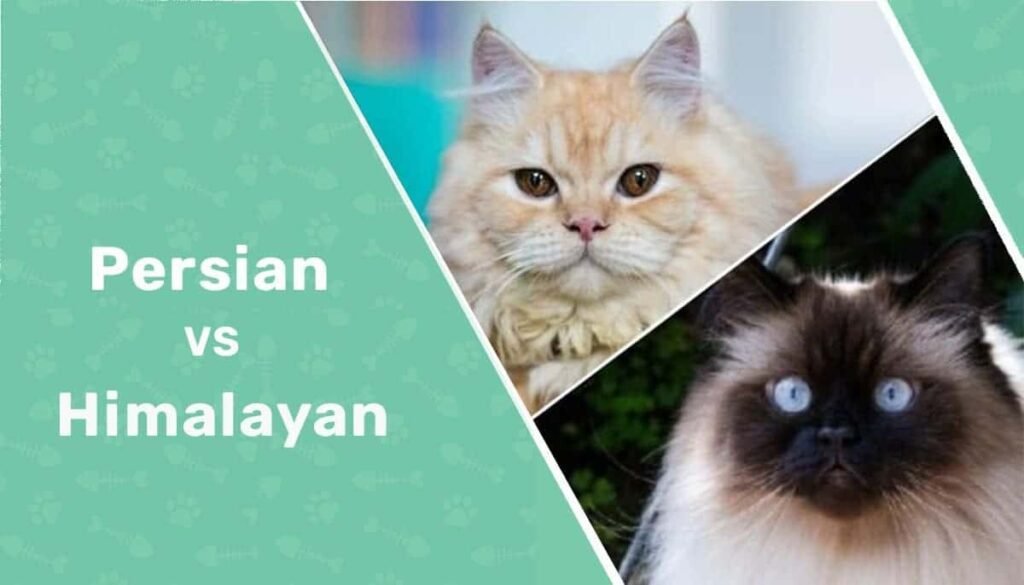
This image is property of www.catster.com.
